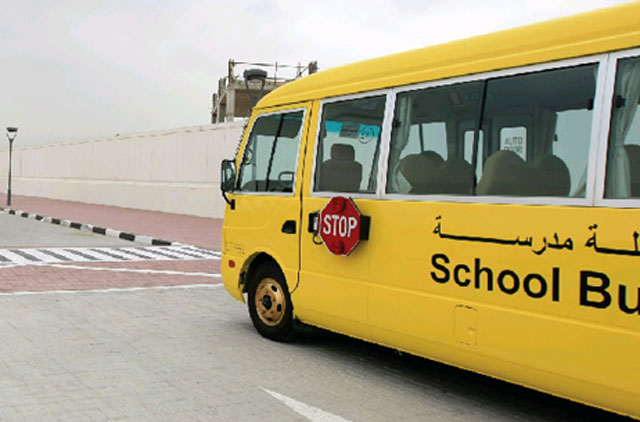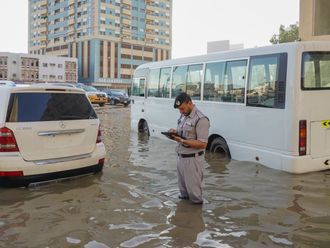Abu Dhabi: Financial concerns due to the recently issued school bus regulations may be eased after the Abu Dhabi Education Council (Adec) introduces four categories which may help schools with their business schemes, officials in the capital said on Sunday.
Earlier this year the Department of Transport (DoT) announced a set of regulations which all public and private school buses must abide by from September 1, 2014.
In light of the new rules, schools must bear the burden of making drastic changes to their fleet.
These include installing Closed Circuit Television (CCTV) cameras, speed limiters and Geographical Information Systems, among a list of other modifications.
“My main concern is that with the amount we are charging parents to send their children to school using our buses, we are barely able to maintain the cost of making these transformations as per DoT requirements. Therefore, by the end of this year, I am considering selling all my buses and alternatively asking parents to place their children in buses belonging to private companies,” said Vision Private School Manager Nabeel Abu Jadar during a press meeting in the capital today.
“This means that students’ coming and going to and from school will be the responsibility of those companies. The other possible solution is that I raise my transportation fee which is currently Dh2,000 per student; but Adec is not approving this proposal without giving me a reason, even though I am providing them with the paperwork they require,” he added.
However DoT officials said that they are coming up with four categories that every school may be placed into when planning their budget. This plan is said to potentially help guide academic institutions when making financial decisions.
“The four scenarios which schools may typically face are: purchasing new buses, renovating old buses and hiring and training bus drivers and supervisors who all have to be attested and approved by Adec,” said Ali Makki, stakeholder relationship manager at DoT.
At this point, DoT officials have confirmed that no penalties are being given to schools who have not completely met all requirements regarding the altered buses, but fines will be handed out once the project deadline has passed next year.
As for current difficulties faced by medium to low-fee schools which are unable to cope with the financial burden that the school-bus transformations demand, Dr. George Nader, Licensing and Accreditation Division Manager at Adec confirmed that once schools have completed modification of 100 per cent of their fleet, without discrepancies, they become eligible to ask Adec for a raise in fee.
“However Adec does look at the overall performance of the school in terms of the academic and transportation services it provides students,” he told Gulf News.
Overall, Abu Jadar noted that parents are very pleased with the new buses, especially the speed limiters which only allow drivers to go up to a maximum of 80 km/h. Additionally, a DoT spokesperson confirmed that works are on the way to further develop and increase the number of bus lanes in the city.
There are currently 184 private schools in Abu Dhabi and about 50 per cent of their buses adhere to the new regulations by at least 80 per cent. The capital’s 265 public schools have buses that are compliant by 90 per cent as works on improving the vehicles went into action two years ago, when the initiative was first announced.













